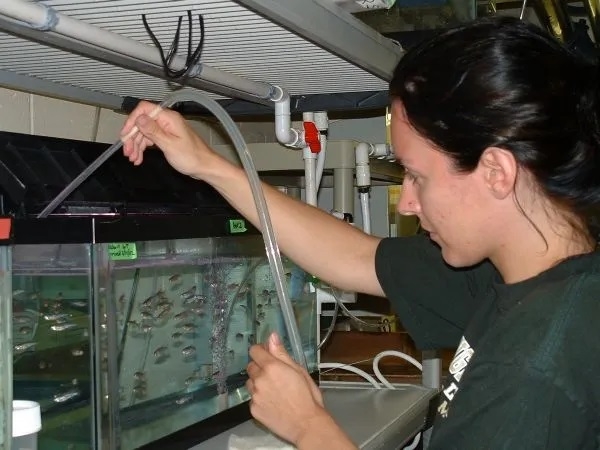Team Finds Potential Therapy for Copper Metabolism Disorders | AgriLife Today

Note: Andrew J. Latimer, a former MBL research scientist in the lab of Jonathan Gitlin, Emeritus Senior Scientist in the MBL's Bell Center, created zebrafish models of human genetic disease for this newly published study. The models permitted Vishal Gohil and his lab to test the efficacy of specific compounds to correct a disorder of copper homeostasis that results in a fatal disorder in human infants. Over many years, Gitlin's laboratory defined and studied the human genetic disorders of metal metabolism.
COLLEGE STATION, Texas – Individuals with defects in copper metabolism may soon have more targeted treatment options thanks to a discovery by a research team led by Dr. Vishal Gohil of Texas A&M AgriLife Research in College Station.
A paper in the Proceedings of the National Academy of Sciences reports that an investigational anticancer-drug, elesclomol, can restore the production of cytochrome oxidase protein complex, a critical copper-dependent enzyme required for mitochondrial energy production.

The discovery is vital since copper is an essential trace metal necessary for survival. Copper is found in all body tissues and plays a critical role in a variety of physiological processes, including energy production, detoxification of harmful free radicals, connective tissue maturation, neurotransmitter biosynthesis and brain development. Read more of the article here.
Source: Scientists discover potential therapy for human copper metabolism disorders | AgriLife Today